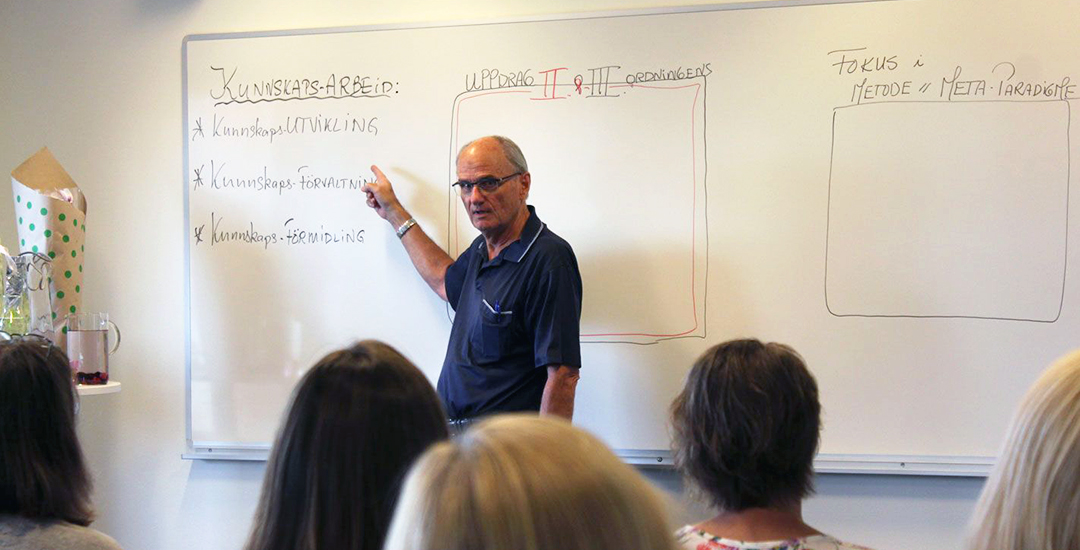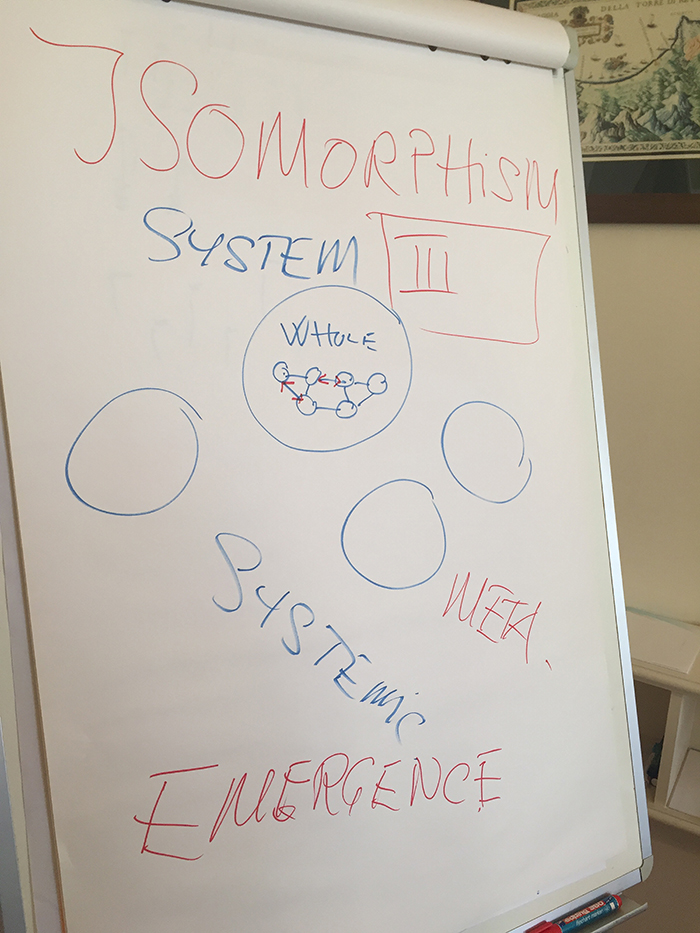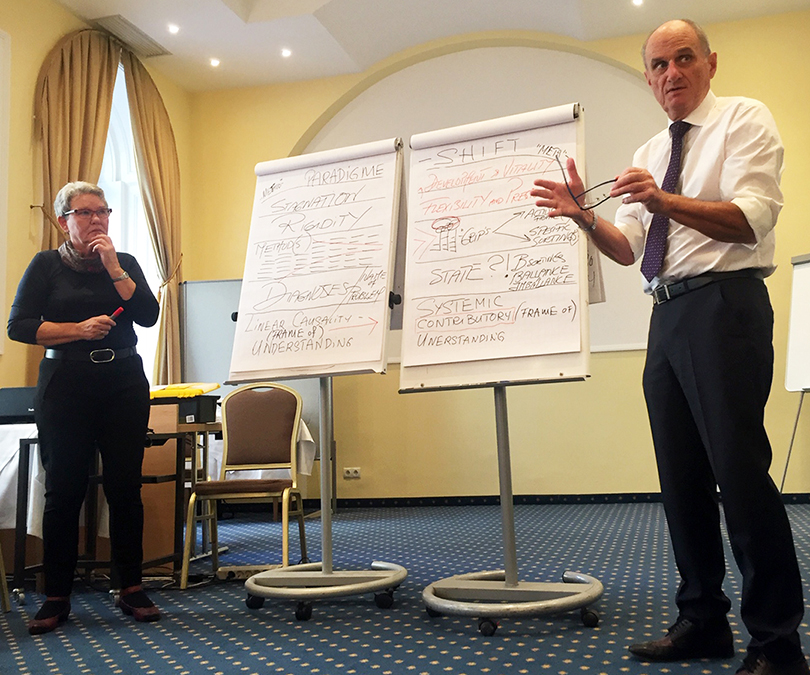
About Communicology
Communicology – as defined by Jorunn Sjøbakken and Truls Fleiner – is a meta-discipline; a field of knowledge that studies, compares and classifies knowledge from other disciplines.
Definition
- The study of the structure and dynamics of communication and change; when all experience and behavior is defined, described and understood as communication
- The study of common key factors in change work
Literally translated, Communicology means the study of what is common.
Knowledge base and development
During the developmental process Sjøbakken and Fleiner have worked with systematizing specialist knowledge within and across different behavioral and social scientific disciplines with special focus on:
– communication and change processes
– studies of human interaction
– systemic frame of understanding
A systematization and classification of knowledge by:
- comparative studies of:
- methods, models, theories, research etc. within and across disciplines
- practitioners with different levels of skills
- professional experiences from work in multidisciplinary teams
- conceptual analysis of terms and concepts
- discovering multiple description within and across several disciplines
- identification of recurrent descriptions – in many different terms – of basically the same essential phenomena and fundamental processes in various disciplines
– conclusion: presupposing “key” factors in communication and change processes - classification of terms and concepts into categories
- selecting collective concepts/names for each category
The collective concepts/metanyms:
- are few in numbers
- have a huge knowledgebase
- have wide application range
– at any system level – individual, relationship, group, organization, society, cultures
– in any fields of knowledge and branches
Value of communicological competence
This competence has proven to provide new opportunities for one and all. Regardless of type and level of previous education, profession and branch.
- Broader distribution of knowledge and competence
- Improved cooperation across fields and branches
- Flexibility and precision in change work
- Ensuring quality in change processes


The Result
The outcome of years of knowledge development is an Inter-Disciplinary Meta-Discipline, Communicology, which represents:
- A common frame of understanding
- A common terminology across fields of knowledge and branches
- A “filter” to recognize key factors and to perform communicological analysis (i.e. to describe what “something consists of”)
- Tools for qualified change work
- Quality criteria to evaluate any human activity in any human context
Communicological competence is made available through an activity-based educational program that leads to an Inter-Disciplinary Meta-Competence.
Value
This competence has proven to provide new opportunities for one and all. Regardless of type and level of previous education, profession and branch.
- Broader distribution of knowledge and competence
- Improved cooperation within and across fields and branches
- Flexibility and precision in change work
- Ensuring quality in change processes
